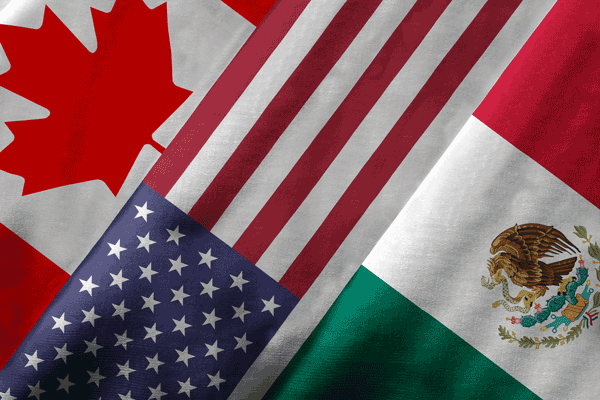
Round one of the renegotiation and modernization of the North American Free Trade Agreement (NAFTA) has concluded in Washington, D.C.
Successful First Round
The negotiations began on August 16 and included meetings by a team of subject matter experts covering more than two dozen negotiation topics.
According to the Office of the U.S. Trade Representative (USTR), the United States, Mexico and Canada made detailed conceptual presentations across the scope of the agreement, and negotiating groups began work to advance text and agreed to provide additional text, comments or alternate proposals during the next two weeks.
The scope and volume of proposals during the first round of the negotiation reflects a commitment from all three countries to an ambitious outcome and reaffirms the importance of updating the rules governing the world’s largest free trade area, according to the USTR.
In addition to the negotiations, officials from all three countries continued to engage a wide range of stakeholders, including representatives of the private sector; industry associations; civil society, including labor groups; legislative representatives; and state/provincial officials, the USTR reported.
Modernizing NAFTA
In June, the CalChamber submitted comments on NAFTA to the USTR. The CalChamber understands that the NAFTA was negotiated more than 25 years ago, and, while our economy and businesses have changed considerably over that period, NAFTA has not. The CalChamber agrees with the premise that the United States should seek to support higher-paying jobs in the United States and to grow the U.S. economy by improving U.S. opportunities under NAFTA.
In July, the CalChamber also sent a letter to the Federal Register Notice (FRN) supporting the modernization of NAFTA.
The CalChamber actively supported the creation of NAFTA among the United States, Canada and Mexico, comprising 484.3 million people with combined annual trade with the United States being around $1.069 trillion in 2016. In 2016, goods exports totaled more than $496.919 billion while goods imports totaled nearly $572.217 billion.
The CalChamber, in keeping with long-standing policy, enthusiastically supports free trade worldwide, expansion of international trade and investment, fair and equitable market access for California products abroad, and elimination of disincentives that impede the international competitiveness of California business.
The provisions of NAFTA have been beneficial for U.S. industries, agricultural enterprises, farmers, ranchers, energy companies and automakers. Any renegotiation of NAFTA must recognize the gains achieved and ensure that U.S. trade with Canada and Mexico remains strong and without interruption.
The CalChamber’s long-standing support for NAFTA is based upon an assessment that it serves the employment, trading and environmental interests of California and the United States, as well as Canada and Mexico, and is beneficial to the business community and society as a whole. Since 1993, trade among the three NAFTA countries has nearly quadrupled.
The CalChamber now urges a quick and efficient process, and one that does not hinder ongoing trade and investment among the three NAFTA members who must be kept united in the same end-goal of a successful renegotiation.
Throughout this process, the Trade Promotion Authority with its objectives and procedures should be followed. Further, during the process, the CalChamber encourages re-examination of the provisions agreed upon by the three countries during the already-negotiated Trans-Pacific Partnership (TPP), as these may provide a starting point for further discussion.
Next Steps
Negotiators from each country will continue domestic consultations and work to advance negotiating text through the end of August, and will reconvene in Mexico for a second round of talks from September 1–5.
Negotiations will continue at this rapid pace, moving to Canada in late September and returning to the United States in October, with additional rounds being planned for the remainder of the year.



